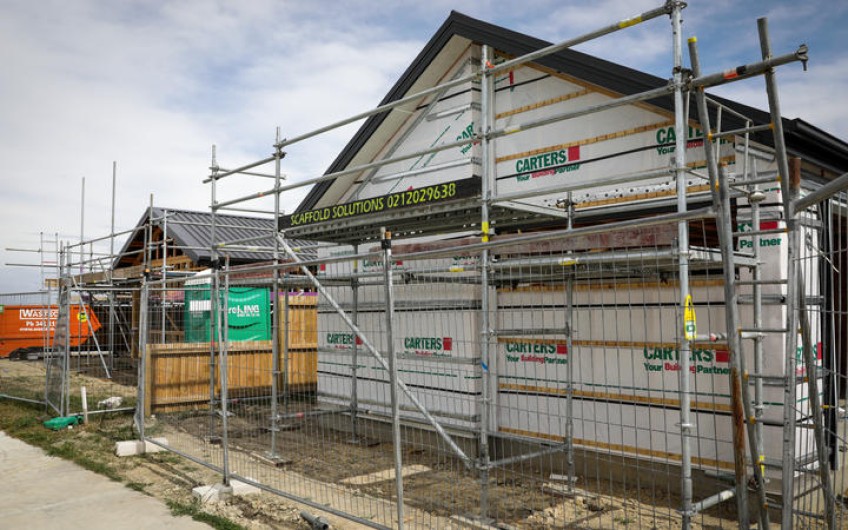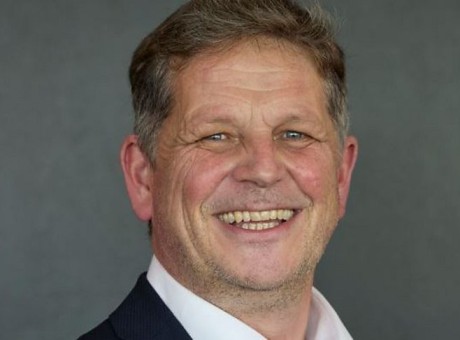Economist: developers love Queenstown and new 'tax' won't send them packing

A leading economist thinks it is "ridiculous" for developers to argue proposed new inclusionary housing rules would add an extra cost hurdle that would be prohibitive to developing land in the Queenstown Lakes District.
Shamubeel Eaqub says the area builds more homes than almost anywhere else in the country, but "insatiable" demand means people on lower incomes are still missing out.
Mr Eaqub is today scheduled to speak on behalf of the Queenstown Lakes District Council at a hearing of submissions on a proposed change to the district plan that would force developers to contribute money or land for affordable housing.
He says the proposal would ensure the district gradually builds up a stock of "retained" affordable housing that is dedicated for people who have low to moderate incomes.
For now, the Queenstown Lakes Community Housing Trust would be the vehicle by which the council delivers this, rather than through the private developers themselves.
However, many developers have voiced their concerns at the proposal, which would require them to hand over five percent of land or the equivalent in cash from new residential subdivisions in existing urban areas to the trust, via the council.
Of the close to 200 submissions received on the proposal, few were supportive of it, and dozens of developers, among those anti it.
A number of them - Willowridge Developments, Universal Developments, Fulton Hogan Land Development, Queenstown Central Limited, Millbrook Country Club Limited, Homestead Bay Trust Limited, Trojan Helmet Limited, Boxer Hill Trust , and Ladies Mile Property Syndicate - have banded together and recruited rival economist Fraser Colegrave to present on their behalf, challenging some of the assumptions made by the council and Mr Eaqub.
In a statement, Mr Colegrave criticises the council's proposal for its "complexity and high transactions costs", which he suggests would have the unintended consequence of eroding the financial viability of some projects and reducing future supply, placing even greater pressure on house prices and rental values.
"While I agree that the district has a chronic housing affordability problem, I expect the proposed policy to make housing less affordable for virtually everyone, except the lucky few helped by the Queenstown Lakes Community Housing Trust."
Mr Colegrave, who is widely recognised an expert on local infrastructure funding, calls the policy a "blunt, ineffective and inefficient tool", which "wrongly blames developers" for the district's housing problems.
"In my view, the policy fails to address the root causes of affordability, which include the district’s extremely high land prices coupled with its elevated construction costs. Those pressures are exacerbated by the impacts of short-term rental platforms like AirBnB, which reduce the pool of homes likely otherwise available for long term rental."
But Mr Eaqub is sceptical the plan change would put off any developer from working in the district.
"That sort of threat is ridiculous.
"I get a little bit frustrated when they go, 'Oh, if anything changes, we're going to just up sticks and leave'. As if. You've been making squillions."
He also pushes back at the suggestion inclusionary housing measures are an ineffective tool in a housing crisis, saying although the idea is a novel one in New Zealand, it is used overseas.
"It's used quite widely in the US, in the UK, in Europe, and increasingly so in Australia...To say that it's a blunt tool that's not useful and doesn't have the desired effect is not true. The reason why they use it is they've found the same issue - that they're finding it very difficult to have affordable housing that's fit for purpose for everybody."
He acknowledges the policy is not without its challenges and there will be "frictions along the way", but does not see it as a policymakers versus developers situation.
He says there will never be one "perfect, single, simple solution" to the district's housing woes, but it is his view an inclusionary housing policy should be part of the solution.
"Public policy always works as what I would call a tapestry - it's a whole bunch of different things moving together and working together to try and have the desired effect, and to pretend that we're going to do it any other way is wrong.
"Inclusionary housing doesn't stop us from needing to invest in infrastructure and doing more planning, more density, all those other bits and pieces, but this is one provision in that wider tapestry that's going, 'Yes, we're doing all those things to build more houses, but when we build more houses, can we please make sure at least a small proportion of it, and it is a small proportion, is reserved for retained affordable housing?'."
The hearing starts today, with presentations from council planner Amy Bowbyes, council legal representative Nick Whittington, and consultant planner David Mead, in addition to Mr Eaqub, and continues through until Friday.
Julie Scott, of the housing trust, is scheduled to present at the hearing tomorrow afternoon.
The heatings panel is comprised of chair Jan Caunter, Jane Taylor, Ken Fletcher and Lee Beattie.
Further details of the hearing are available on the council's website.
An audio recording of the previous day's proceedings will be available online on each morning of the hearing.
For close to two decades, the council has already been using inclusionary housing as a way of securing affordable housing contributions from developers on a case-by-case basis, and the proposed rules would formalise that arrangement and provide more certainty the contributions will continue.
The new rules, if adopted, would exclude areas where the council already has a pre-existing agreement with a developer regarding affordable housing provision.
Read more:
QLDC pushes 'groundbreaking' district plan change for affordable housing
Housing trust proposes 'average' home builders escape development cost

























